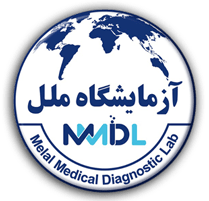Infertility could an incomparable medical condition of the reproductive system characterized by the inability to achieve pregnancy after more than 12 months orderly intercourse without use of contraception in women but 35 years of age; and after six months of normal intercourse without use of contraception in women 35 years and older. Some clinicians use the term subfertility to clarify this failure to conceive unless the couple has been proven to be sterile. It affects nearly 15% of all couples wishing to conceive and is generally attributed to males and females equally. A healthy young couple in their mid-twenties has only a 20–25% chance of achieving pregnancy in each cycle; a range of factors, each with different extents of genetic control, may influence their chances. Infertility can be hormonal, related to age, exercise, obesity or infectious disease; it can be immunological, psychological, result from surgery or blockage, or be associated with defined abnormalities in the gametes.
Infertile females
PCOS
PCOS is a condition found in women who typically don’t ovulate, characterized by excessive production of androgens (male sex hormones) and the presence of cysts in the ovaries. Follicles go through the normal maturation process but fail to become eggs due to the hormonal imbalance. PCOS can range from mild to serious, and so can the symptoms. Some of the symptoms might include: excessive weight gain, acne, diabetes and excessive hair growth. Women with PCOS have a hormonal imbalance and metabolism problems that may affect their overall health and appearance. PCOS is also a common and treatable cause of infertility.
Panel Tests
- 17-OH progesterone
- Androstenedione (ASD)
- Comprehensive Metabolic Panel (CMP)
- DHEA-S (Dehydroepiandrosterone sulfate, DHEA-SO 4)
- Estradiol
- Fasting Glucose
- Fasting Insulin
- Follicle Stimulating Hormone (FSH-female)
- Glucose Tolerance
- Hemoglobin A1c
- High Sensitivity C Reactive Protein (hs-CRP)
- LH (Luteinizing Hormone, lutropin – female)
- Lipid Panel
- Prolactin
- Sex Hormone Binding Globulin (SHBG)
- Testosterone
- TSH (Thyroid Stimulating Hormone)
Premature ovarian failure
Premature Ovarian Failure is the loss of ovarian function by a woman under the age of 40. As a result, a woman does not ovulate (release an egg) each month.
Some women will have other menopause-like symptoms that may include: hot flashes and night sweats, irritability, poor concentration, decreased interest in sex or pain during sex, drying of the vagina and infertility. Other complications, some of which can be tested for, include: low thyroid function, autoimmune disorder, genetic disorder, osteoporosis or heart disease.
Lab tests
- ACTH (Adrenocorticotropic Hormone)
- Aldosterone
- C-Peptide
- CA-125
- Cortisol
- Growth Hormone
- Insulin
- T3 (Triodothyronine)
- T4 (Thryroxine)
- TSH (Thyroid Stimulating Hormone
- Thyroid Peroxidase (TPO Ab
- Vitamin D 25OH
- Anti-Mullerian Hormone (AMH)
- Anti-Ovarian Antibodies (AOA)
- Clomiphene Citrate Challenge Test (CCCT)
- Estradiol
- Exogenous FSH Ovarian Reserve Test (EFORT)
- Follicle Stimulating Hormone (FSH-female)
- Inhibin B (Female)
- LH (Luteinizing Hormone, lutropin – female)
- Progesterone
- Prolactin
Thrombophilia
Thrombophilia refers to inherited or acquired disorders that can result in an increased chance for abnormal blood clotting. During pregnancy, this can cause microscopic clots to form in the placenta depriving the fetus of adequate blood flow. Several tests have been developed to assist in assessing the clotting capacity of a patient.
Candidates for Thrombophilia testing typically include recurrent pregnancy loss, infertility, implantation failures, In vitro fertilization and embryo transfer (IVF-ET) failures, thromboembolic disease at a young age with no associated trauma, positive family history or whose thrombosis involves an unusual site. Compared to fertile women, a finding of a higher incidence of thrombophilia in women submitted to repeat cycles of in vitro fertilization (IVF) and implantation failure has become increasingly common.
Panel Tests
- Activated Partial Thromboplastin Time (APTT)
- Antithrombin
- Factor V Leiden
- Factor VII
- Factor VIII (Von Willebrand Factor)
- Factor X
- Factor XI
- Factor XII
- Factor XIII
- Homocysteine
- MTHFR
- Plasminogen Activator Inhibitor – 1 (PAI-1) –
- Protein C
- Protein S
- Prothrombin
Infertile males
Sperm disorders
40% of infertility problems are male related. Male infertility is any condition that interferes with a male’s ability to initiate a pregnancy with the female partner. Essentially it is due to the fact that a man has too few healthy sperm in their semen that are capable of fertilizing an egg through sexual intercourse. There are a wide range of causes that can be tested for and are due to genetics, hormonal disorders, sperm function or sperm quantitative/qualitative features.
Panel Tests
- Acrosome Reaction
- Anti-sperm antibody (male)
- Chromosome Analysis Karyotyping
- Estradiol (male)
- Follicle Stimulating Hormone (FSH-male)
- Hyaluronan Binding Assay (HBA)
- Inhibin B (Male)
- LH (Luteinizing Hormone – male)
- Prolactin (male)
- Semen Analysis
- Sperm DNA Decondensation (SDD)
- Sperm DNA Fragmentation (SDFA)
- Sperm Penetration Assay (SPA, Hamster Test)
- Testosterone
- Y Chromosome Microdeletion

